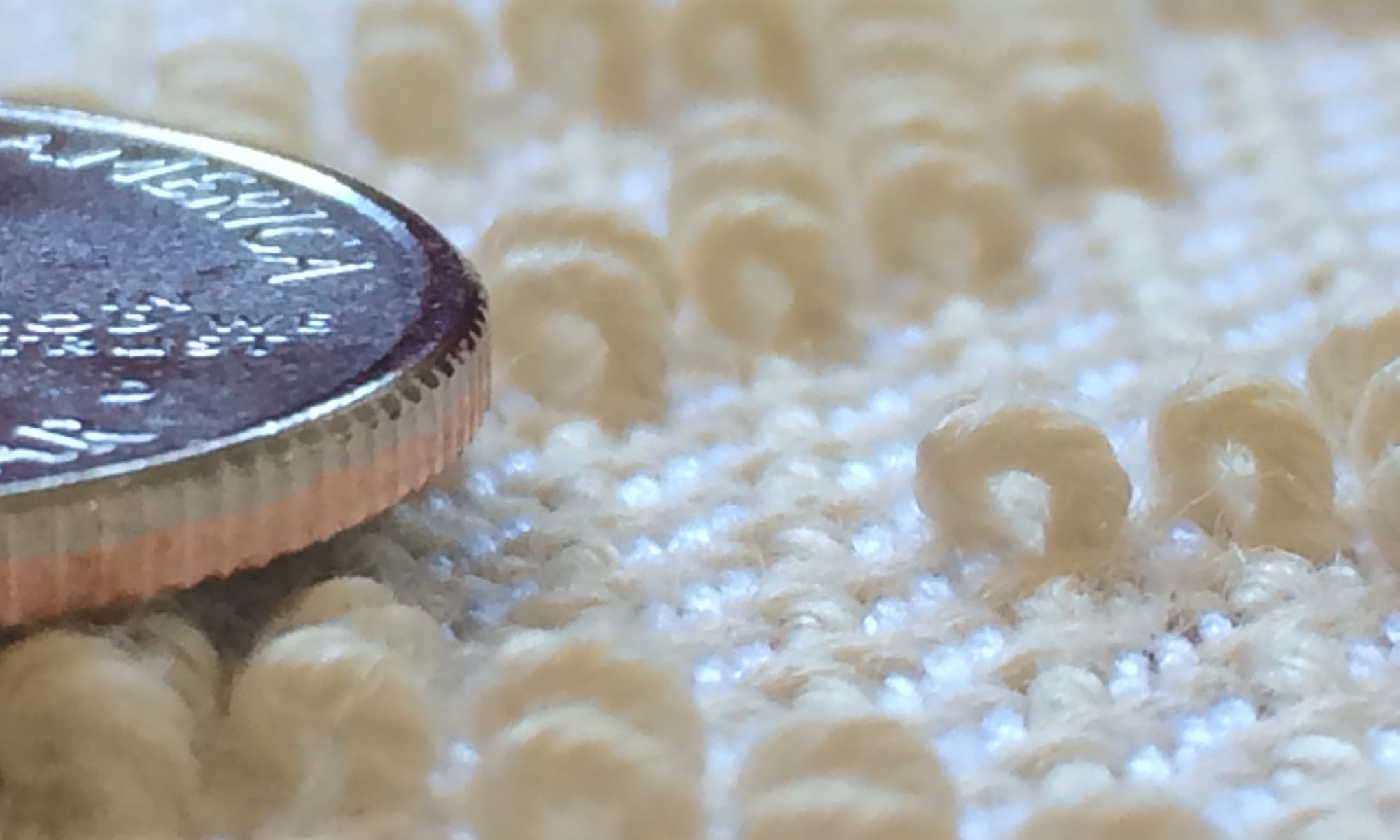This is not meant to be an exhaustive discussion of this topic. I talk more about this during events, both in-person and online. See the News and Events section or sign up for the mailing list to keep updated!
Pibiones are small raised bumps of thread found on the most distinctive of Sardinian textiles. The name comes from an ancient word for grapes, as pibiones feel like grapes, and grapes and the harvest play a significant part in Sardinian history.
Touching pibiones is an enchanting experience: Rub your hand over a handwoven textile bearing a pattern created by the pibiones, and your hand feels as if it’s getting a massage. You may even feel you’re playing an instrument that creates a nearly-silent tune, as the pattern and organization of the pibiones are musical in arrangement! Pibiones are practical, as well: They add strength, texture, and design to a textile.
Weaving a textile with pibiones requires skill, dexterity, and patience. Pibiones are created by winding fibers around a long needle that sits on top of the weft (the foundation threads of a textile). Each pibione is counted and wound by hand, one pibione at a time, one row at a time, matched against a pattern drawn on graph paper. (See pibiones being woven in I Want to Weave the Weft of Time.)
The best pibiones are firm to the touch and remain durable and distinct when the textile is used. To achieve the desired firmness, threads used in the pibiones are often spun a second time before being woven.
While considered uniquely Sardinian, the pibiones tradition of weaving is today found primarily in the Samugheo, in the center of the island. Aggius and Nule, other Sardinian towns renowned for their handwoven textiles, have different weaving traditions.
To learn more, see other pages on this site, including The Art of Handweaving, watch the documentary I Want to Weave the Weft of Time, and/or attend one of my presentations about Sardinian handweaving. The News and Events area lists upcoming presentations and film screenings.

